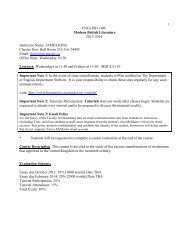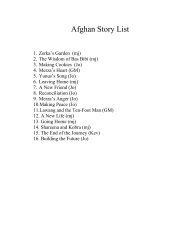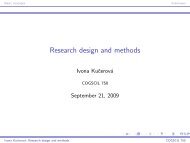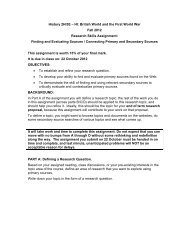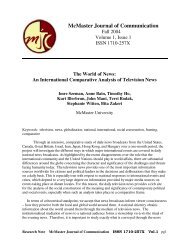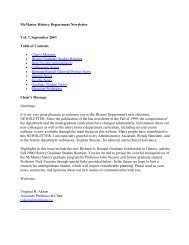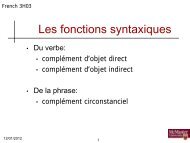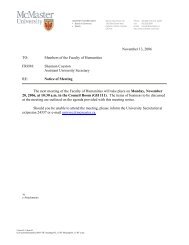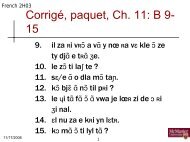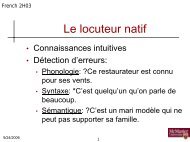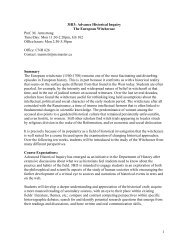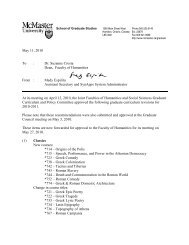handout
handout
handout
Create successful ePaper yourself
Turn your PDF publications into a flip-book with our unique Google optimized e-Paper software.
Ivona Kučerová<br />
UCL, ivona@alum.mit.edu<br />
Sinn und Bedeutung 12<br />
Oslo September 22, 2007<br />
BUT: not every word order is possible with a particular interpretation:<br />
(4) e.g., if the object and the verb are given and the subject is new:<br />
a. ̌O V S<br />
b. # V O S<br />
(5) The second generalization:<br />
In a given context and with a particular interpretation, there is only one<br />
felicitous order.<br />
(6) The third generalization:<br />
An utterance maybe be divided into domains. Within any domain there can<br />
be a partition between given and new.<br />
−→ domains correspond to chunks that have been argued to be propositional<br />
(7) a. Do you know anything about Petr and Marie?<br />
b. Náhodou jsem slyšel, že Petrovi<br />
accidentally Aux.1sg heard that Petr.Dat<br />
Marii | zaměstnali v ABB.<br />
Marie.Acc employed.1pl in ABB<br />
| říkala<br />
told<br />
nějaká<br />
some<br />
paní,<br />
lady<br />
že<br />
that<br />
‘I accidentally heard that some lady told Petr that Marie got employed<br />
in the ABB.’<br />
(8) a. Do you know what Mary did with her famous boat?<br />
b. Marie | se pokusila lod’ | prodat.<br />
Marie REFL tried boat to-sell<br />
‘Marie tried to sell the boat (but no one wanted to buy it).’<br />
c. Marii | nařídil soud lod’ | prodat.<br />
Marie.Dat ordered court.Nom boat.Acc to-sell<br />
‘(You won’t believe it but) a court ordered Marie to sell the boat.’<br />
−→ a rather complex data pattern that so far has not been properly characterized<br />
Desiderata:<br />
• to characterize the word order restriction and its relation to information structure<br />
• to explain it<br />
2



